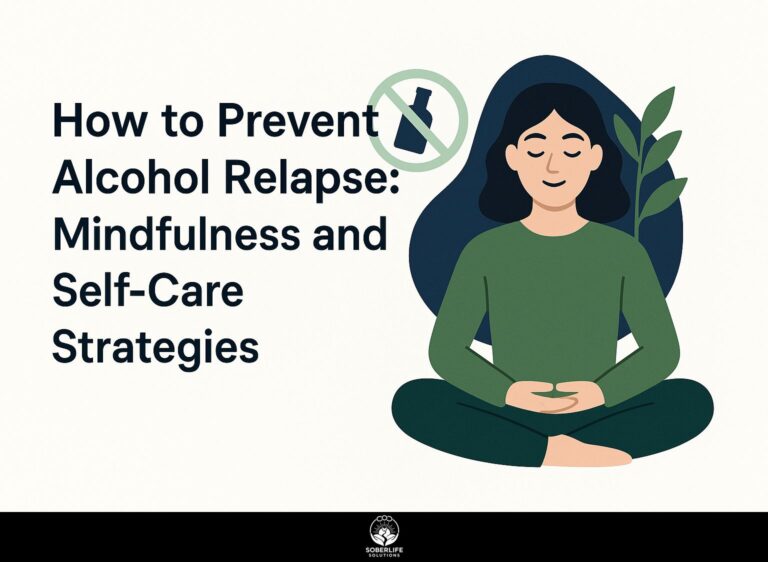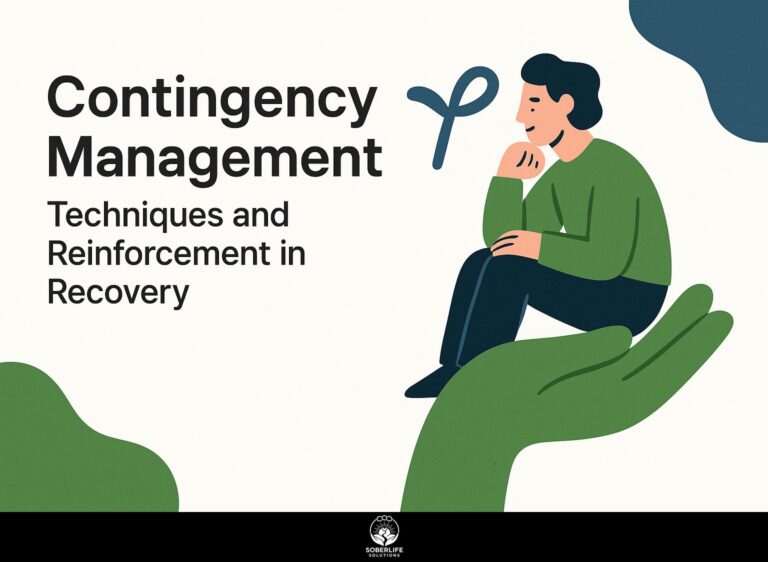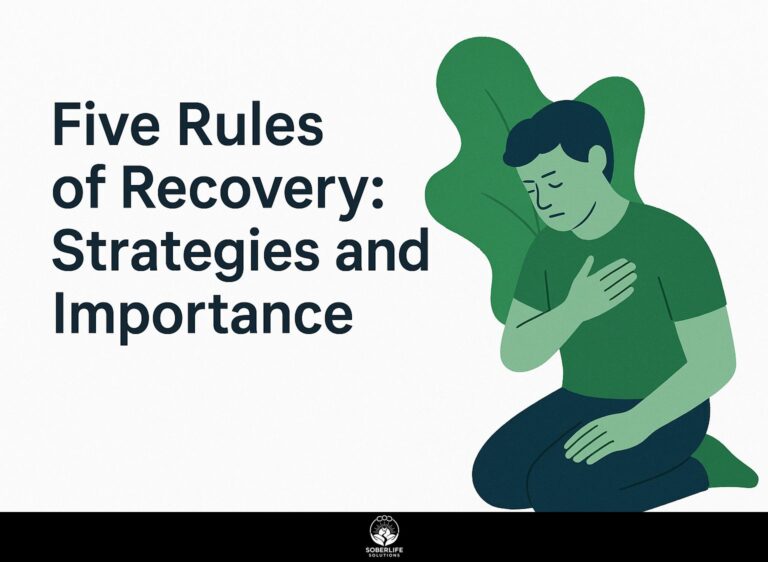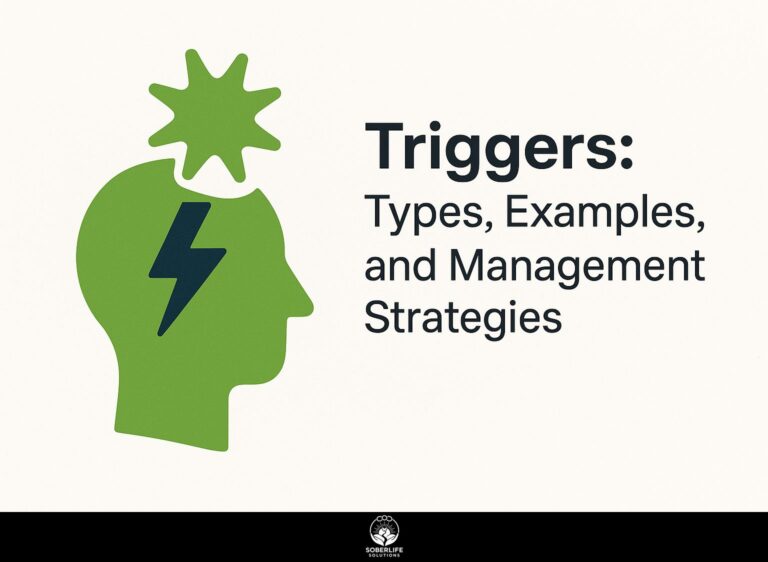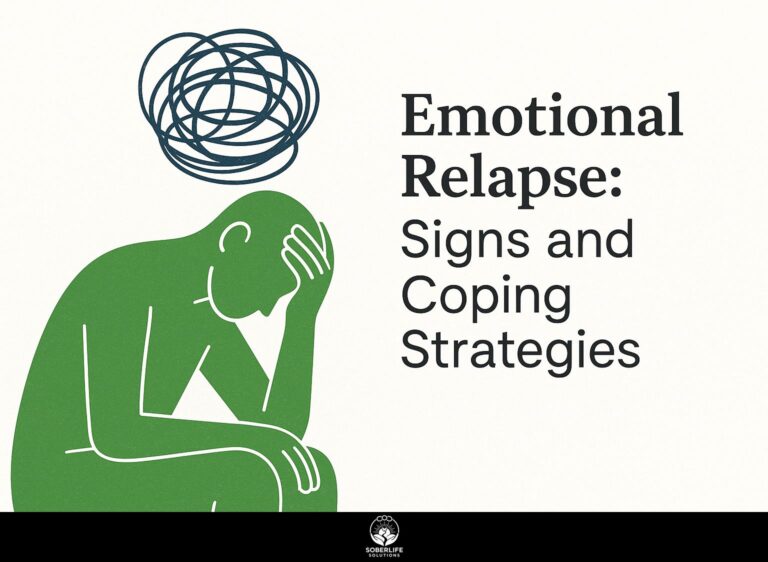Relapse Prevention: Techniques, Strategies, and Importance
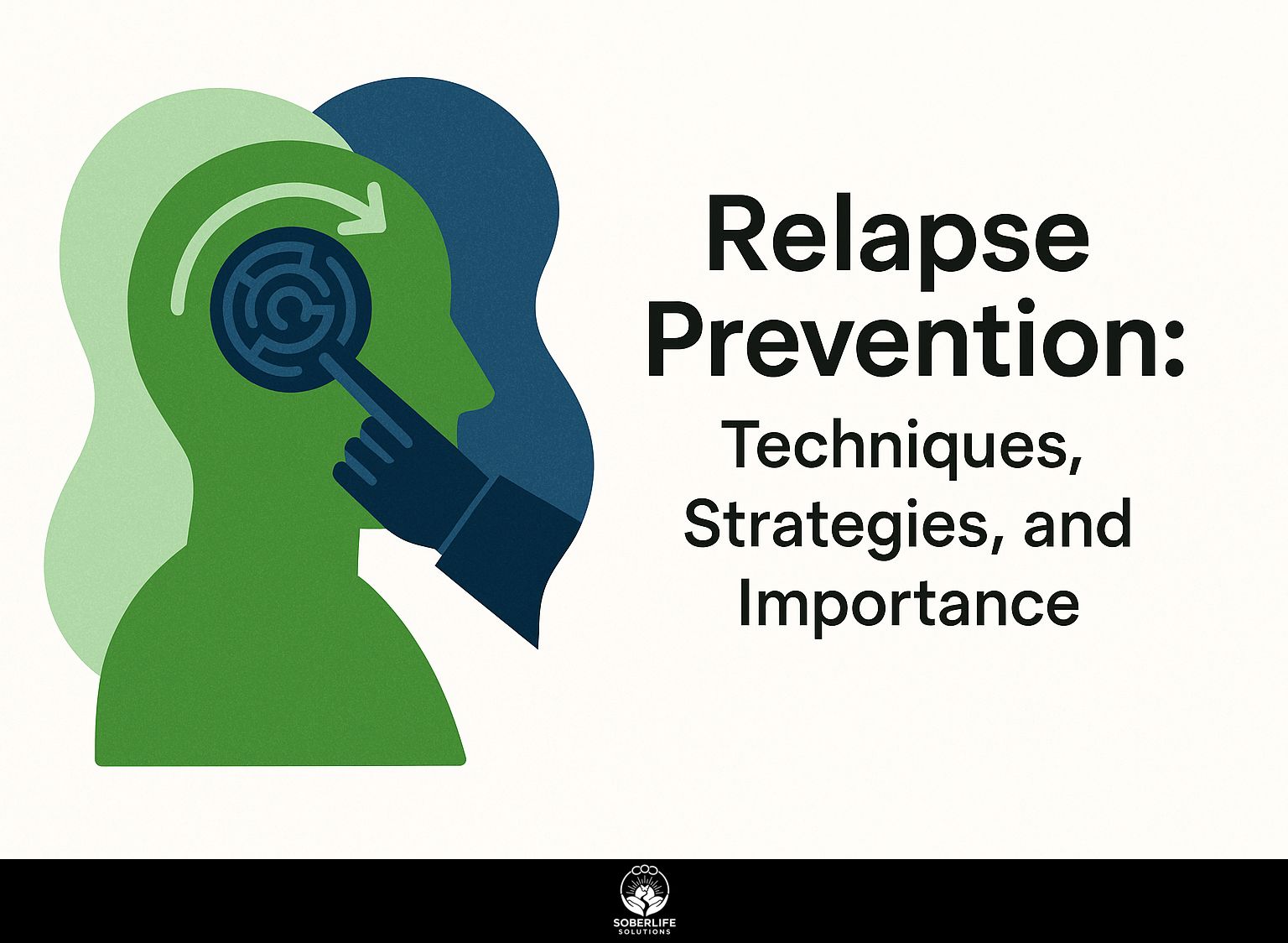
Preventing a return to substance use is important for anyone going through recovery, whether they are overcoming alcohol dependence or other drug addictions. With guidance from professionals like Theresa Parisi and help from groups such as Alcoholics Anonymous and Narcotics Anonymous, people can learn useful recovery skills and ways to handle challenges. This article explains the significance of emotional support and useful methods to keep long-term sobriety, helping you to establish a solid base for your recovery path.
Key Takeaways:
Understanding Relapse
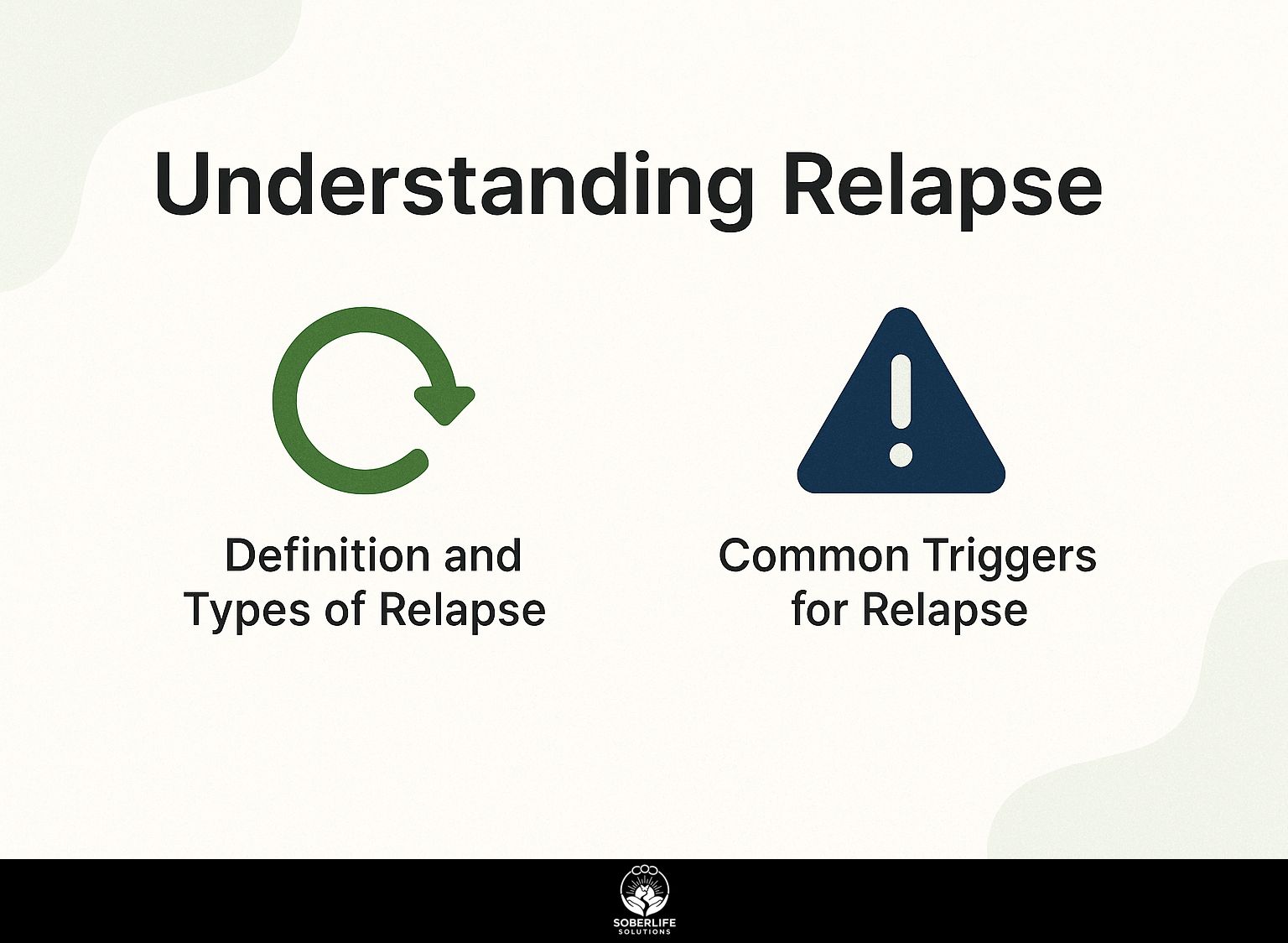
Learning about relapse means knowing what it is, the different forms it can take, and the usual reasons why people might start using substances again. According to research findings by NYU Langone Health, understanding these factors is crucial for implementing effective prevention strategies. If you’re interested in practical measures to counteract these risks, you might explore how engaging in various activities can serve as a powerful [tool in preventing relapse](https://soberlifesolutions.com/stay-busy-prevent-relapse/).
Definition and Types of Relapse
Relapse can manifest in three primary forms: emotional, mental, and physical, each requiring distinct approaches for prevention.
Emotional relapse involves increasing feelings of anxiety or irritability. To combat this, practice mindfulness techniques, such as deep breathing exercises or journaling, which can help identify triggers early.
Mental relapse happens when you start craving or daydreaming about using substances. Doing activities such as starting a hobby or joining a support group can be very helpful.
Physical relapse, the act of returning to substance use, often occurs suddenly. Building a solid support network and regularly attending therapy can provide essential safety nets to minimize the risk.
Common Triggers for Relapse
Triggers for relapse can be categorized into internal and external factors, with effective management techniques essential for sustaining recovery.
Internal triggers, such as emotional distress, can arise from feelings of sadness or anxiety. To combat these, practice the HALT technique: check if you’re Hungry, Angry, Lonely, or Tired, and address the underlying need.
For external triggers, like social situations that may tempt you, establish a supportive circle and create also an exit plan. According to Psychology Today, understanding what triggers cravings can be pivotal in managing these situations effectively.
Grounding methods, like deep breathing or paying attention to your environment, can help you take back control during tempting situations. Using these strategies can greatly improve your ability to handle potential relapses.
Techniques for Relapse Prevention
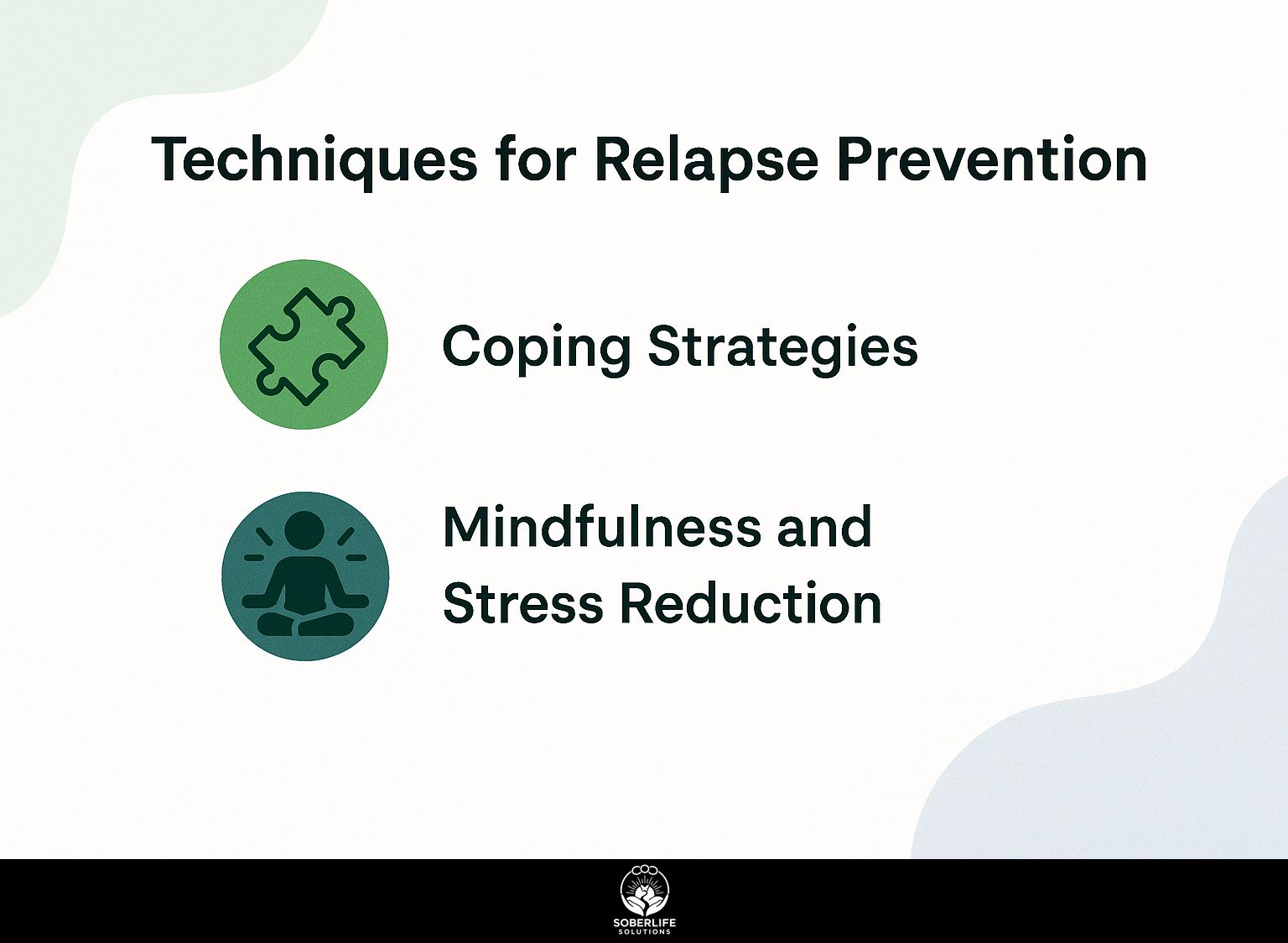
Using practical methods for preventing relapse can greatly improve a person’s ability to manage the challenging process of recovery. Curious about how to create an effective relapse prevention plan? Exploring key components can provide invaluable structure and guidance during this journey.
Coping Strategies
Implementing positive coping strategies, such as structured schedules and emergency contact lists, can significantly aid individuals in managing stress and triggers.
Plus schedules, consider incorporating journaling into your daily routine. This practice allows for self-reflection, helping you to process emotions and reduce anxiety.
Regular exercise is important; activities like yoga or jogging can improve mood and help you relax. Creating a personal plan to reduce stress by using breathing exercises or practicing mindfulness meditation can quickly help you feel calmer during overwhelming moments.
For additional support, platforms like BetterHelp offer online therapy sessions with licensed professionals, ensuring you have access to guidance when needed.
Mindfulness and Stress Reduction
Mindfulness practices, including meditation and breathing exercises, provide powerful tools for reducing stress and enhancing emotional resilience.
-
Starting with daily meditation, use apps like Headspace or Calm for guided sessions; aim for at least 10 minutes each morning.
-
Combine this with deep breathing exercises, such as the 4-7-8 technique: inhale for 4 seconds, hold for 7, and exhale for 8.
-
Track your progress by noting how you feel on a scale of 1 to 10 before and after each practice. Over 4-6 weeks, you should notice a significant reduction in anxiety levels and increased overall clarity.
Support Systems
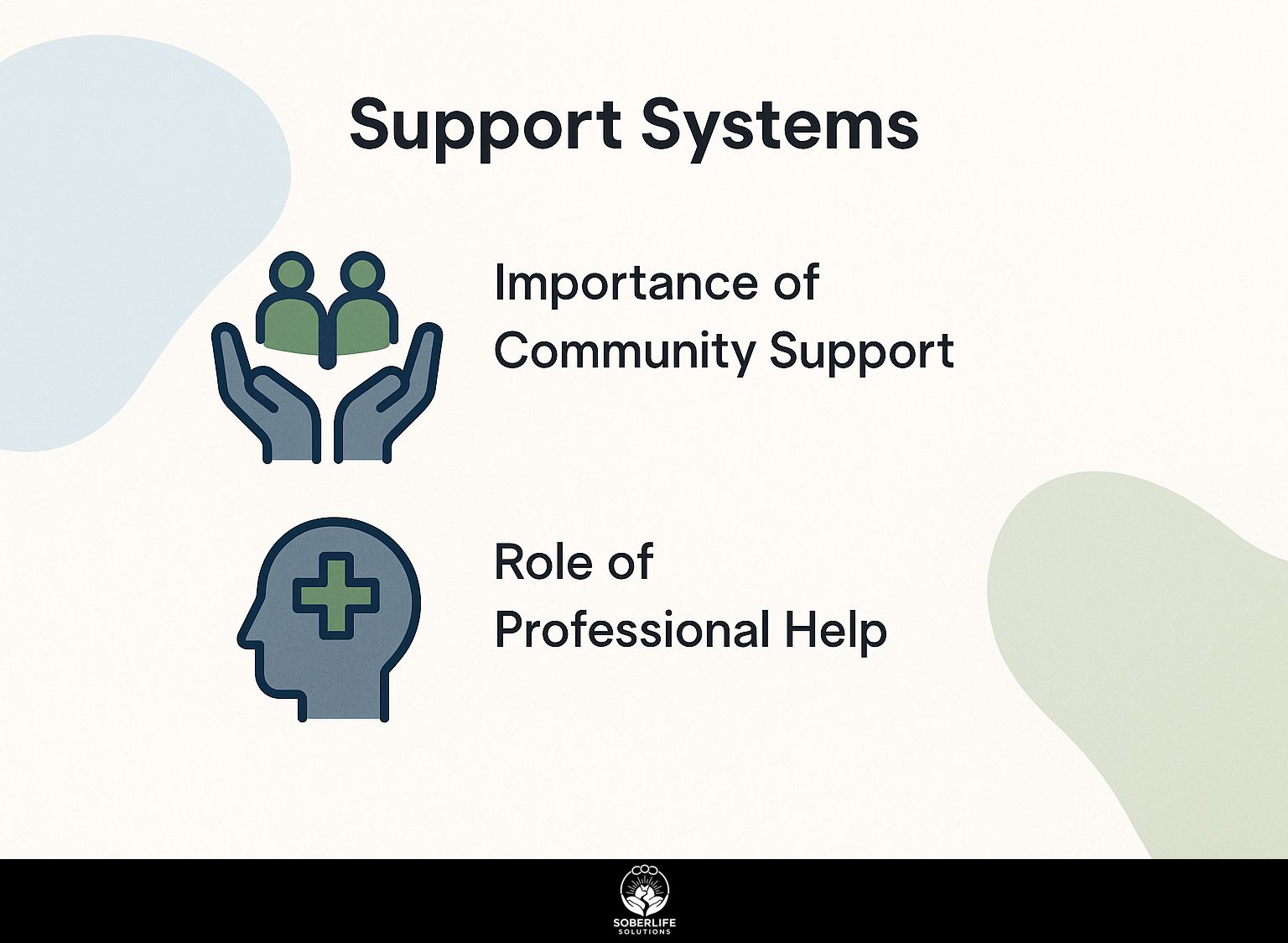
Support systems are important in preventing relapse by offering people the emotional and practical help they need for ongoing recovery. To further understand how these systems function, our exploration of sober support systems that help highlights key strategies that have proven effective.
Importance of Community Support
Support groups like Alcoholics Anonymous and Narcotics Anonymous are important resources for people who want to stay sober.
These groups help people connect through common challenges, letting members come together over personal difficulties. A study found that individuals in support groups are 50% more likely to maintain sobriety compared to those who do not participate.
Engaging regularly in meetings encourages accountability; setting attainable goals with fellow members helps reinforce commitment. Many groups offer resources such as mentorship programs, where veterans provide guidance to newcomers, enhancing the sense of community and support.
These elements together improve the chances of successful long-term recovery.
Role of Professional Help
Professional help, including individual and group therapy, is essential for addressing the psychological aspects of addiction and preventing relapse.
Cognitive Behavioral Therapy (CBT) is highly effective for many individuals, focusing on identifying and altering negative thought patterns that contribute to addiction. For instance, a study by the National Institute on Drug Abuse found that participants using CBT had significantly lower relapse rates. For those interested in a comprehensive overview of this approach, this analysis on Verywell Mind delves into its efficacy in treating addiction.
Motivational Interviewing (MI) helps clients find their own reasons to change and supports a recovery plan that suits their personal needs. A case study involving a young adult showed that MI helped them develop a stronger commitment to sobriety and a clear action plan, resulting in successful long-term recovery.
Developing a Relapse Prevention Plan
A detailed plan to prevent relapse is essential for spotting possible dangers and developing practical methods to reduce them.
- Start by identifying your personal triggers, which might include stress, social situations, or specific environments.
- Then, develop specific coping strategies, such as mindfulness exercises, journaling, or reaching out to a support network.
- An effective approach is to outline these strategies in a clear format. Create a list of at least three people you can call quickly for help during your recovery. Make sure they know your situation.
- Utilizing templates from OASAS can provide a structured way to organize these elements effectively. For further guidance, check out our expert tips on creating a relapse prevention plan.
Monitoring and Self-Assessment
Regular monitoring and self-assessment are critical in tracking progress and identifying areas needing improvement in recovery.
To facilitate effective self-assessment, consider using a recovery tracking app like SoberTool or I Am Sober.
These tools help you monitor your daily emotions, reasons, and achievements, making it easier to identify trends over time.
Setting weekly targets like going to three support meetings or doing mindfulness exercises for 10 minutes each day can improve your concentration.
At the end of each month, look at what you’ve achieved and celebrate those successes. This encourages positive behavior and keeps you motivated in your recovery process.
Importance of Continuous Learning
Studying often about addiction and recovery helps you develop and strengthens your ability to deal with difficulties, which is essential for maintaining sobriety for a long time.
For more information, read Jack Kornfield’s book “Healing the Heart of Addiction” or join mindfulness classes at Spirit Rock workshops.
Online courses from platforms like Coursera often feature expert lectures on addiction recovery strategies. Learn more about how various therapies can influence your recovery journey by exploring therapies for recovery: process and impact explained.
Joining local support groups or forums can provide useful tips and stories from others who have gone through similar situations. These actions support individuals in learning and creating a supportive community, which is important for staying sober.
Frequently Asked Questions
What is relapse prevention and why is it important?
Relapse prevention means using methods and plans to stop going back to bad habits or behaviors that someone has already quit. It is important because relapse can hinder progress and lead to setbacks in personal growth and recovery.
What are some common relapse prevention techniques?
Some common techniques for relapse prevention include identifying triggers and avoiding high-risk situations, developing coping skills to deal with stress and cravings, staying connected to a support system, and setting realistic goals and expectations.
How can mindfulness help with relapse prevention?
Mindfulness involves being aware of the present moment and accepting it without judgment. This can help individuals recognize and cope with triggers and cravings, manage stress, and make intentional choices that support their recovery goals.
What role does self-care play in relapse prevention?
Self-care is an important aspect of relapse prevention as it promotes physical, mental, and emotional well-being. Doing things like exercising, eating well, and using relaxation methods can lift your mood and lower stress, helping you avoid the temptation to relapse.
Why is having a relapse prevention plan important?
A relapse prevention plan is a customized approach that details actions to take when facing risky situations or triggers. It serves as a roadmap for managing potential setbacks and helps individuals stay on track with their recovery goals.
How can family and friends support relapse prevention?
Family and friends can be very important in preventing relapse by being aware of and supportive during a person’s recovery process. This can include being aware of potential triggers, encouraging healthy habits, and providing a listening ear and emotional support when needed.

